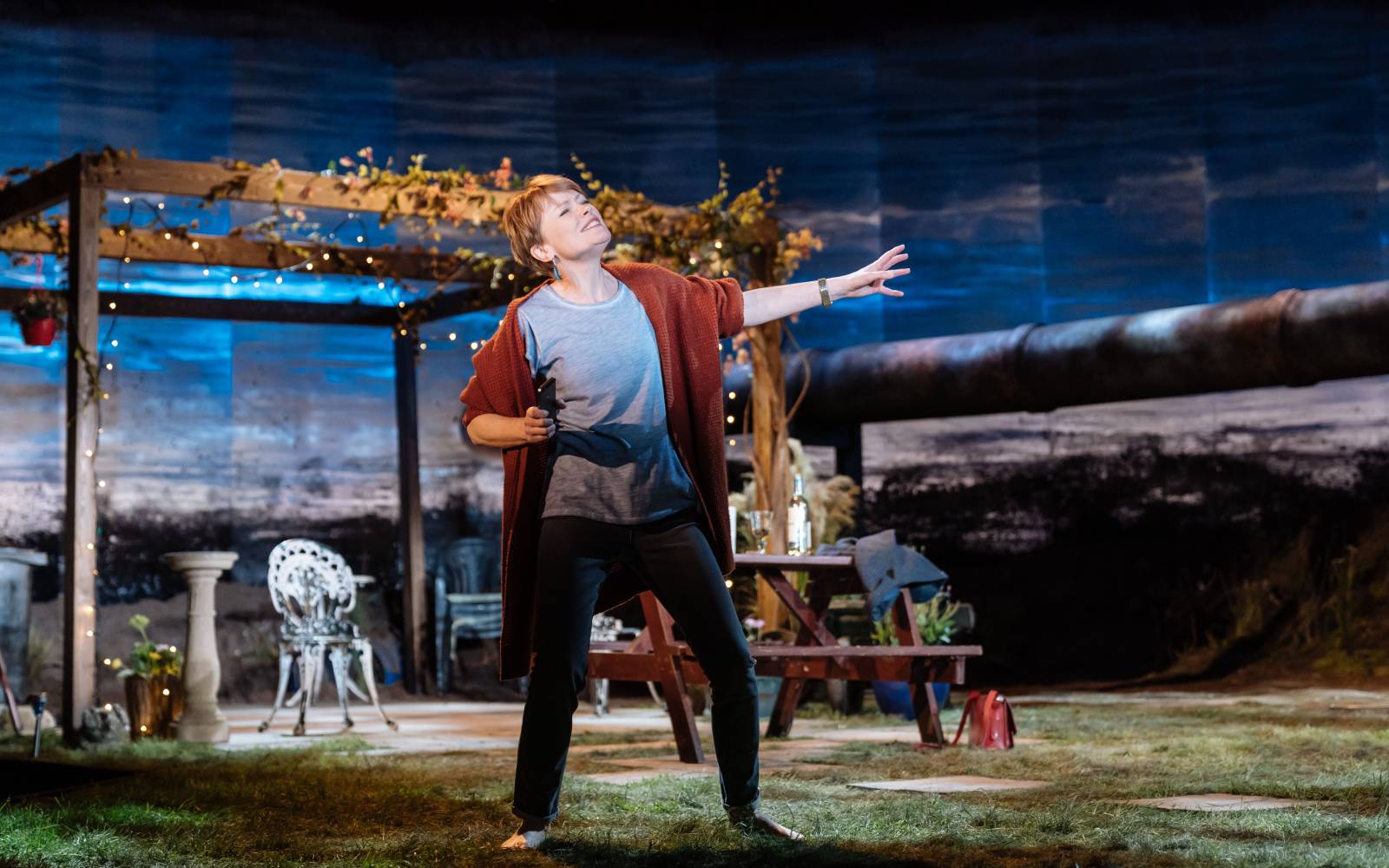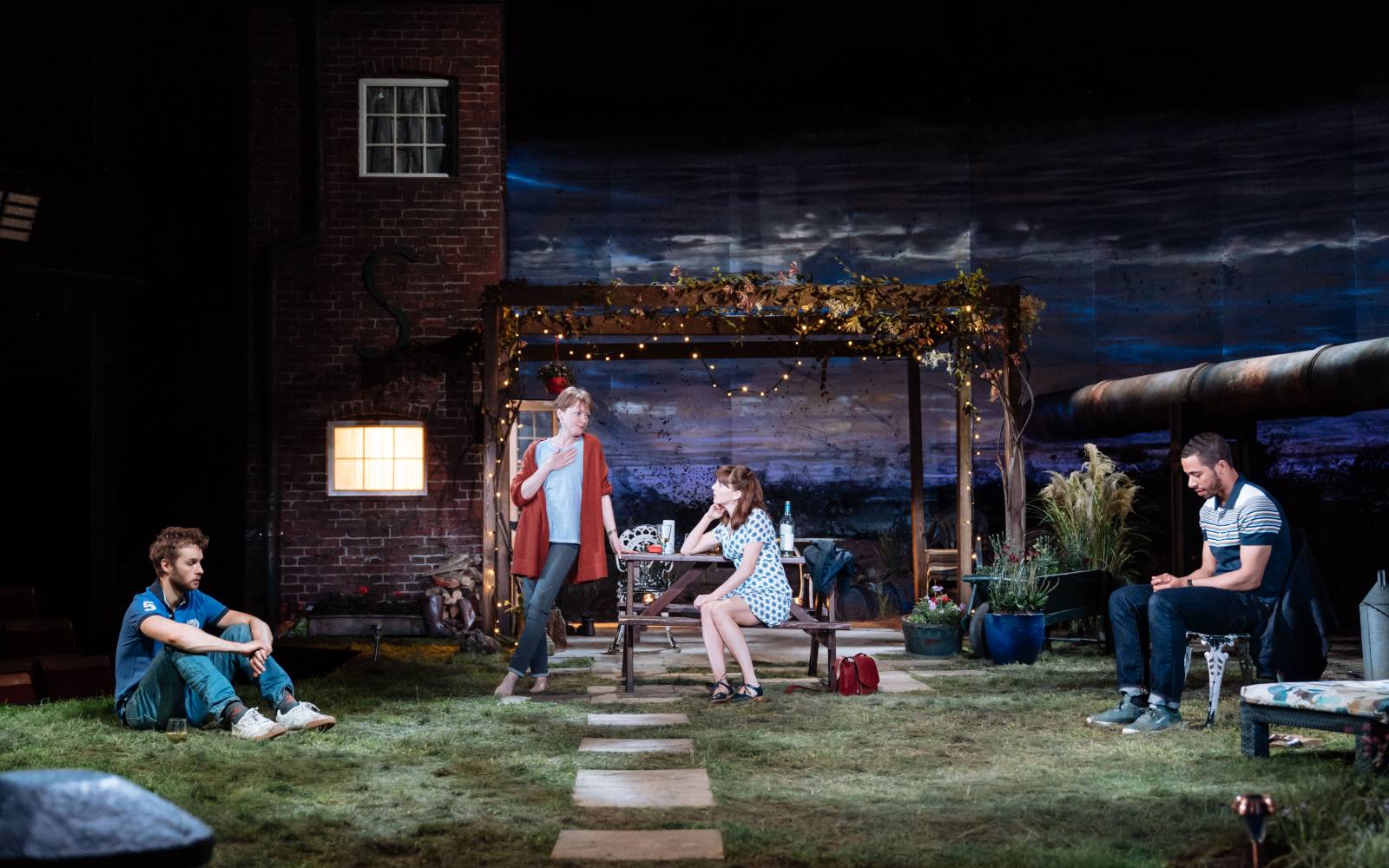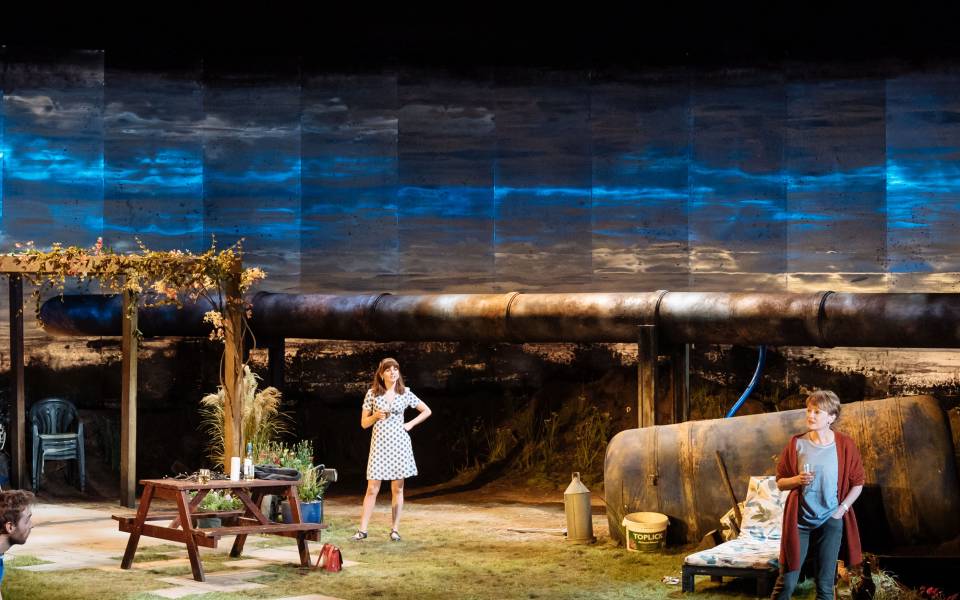
Ransom Note
Barney Norris
When I was growing up, I worked in bars and cafes in the Wiltshire city of Salisbury with people who, in many cases, had to wear themselves through to pay the rent. What I felt about us all, observing the people around me who supported families on the minimum wage, who had left their homes behind and crossed the world with astonishing bravery in search of opportunity, who put their bodies through the wringer at weekends because the unhappinesses of their working weeks needed to be violently shaken off, was that our lives had been hijacked.
What seemed to have been stolen from us were our dreams. Firstly because the struggle for money consumed our energy, creativity and intelligence, and filled up the horizon of our ambition. Secondly, because we were continually bombarded by images designed to offer us the possibility of relief from the pressure of that struggle, on every billboard and every screen, so that we had to fight to stop those images affecting and shaping the aspirations we were still able to form for ourselves.
We all knew it was happening. We all viewed with wry detachment the fact that our lives had been stolen, and our days seemed to be filled with paying the ransom to get them back. But plotting a route out of that situation was a very difficult thing to do.
This was the reason I started writing. I wanted to tell stories about the people who have to fight to exert any agency over what becomes of their lives, because of the circumstances of their birth and the social moment in which they live. The people who live their lives in a state of continuous exhaustion, because no one will pay them enough, because they can’t break out of this life they’re in. The hijacked. I believed telling these stories might contribute to challenging the predicament so many of my friends and family found themselves in.

We live in a country that has been stolen from its people. Stolen by a political class, stolen by a monopoly capitalism that locks us into wage brackets while leaving the cost of living to go wherever the wind blows, stolen by the swamping homogeneity of middle-class white western taste and the deluge of socially and behaviourally normalising expectations poured on us by the promotional materials of multinational corporations, everywhere we look.
We live lives that have been stolen from us. Our individuality, our models of aspiration and behaviour, our fantasies and heresies, all are distorted and driven by a mid-Atlantic mean of expectation designed to make people want the same things as each other, and thereby turn them into more efficient markets. We allow everything we think to be recorded, because in our atomised, exhausted modern urban communities, social media was welcomed as a route out of loneliness, and its potential for turning all our secrets into someone else’s property didn’t seem as important as that.
There was a social moment when we felt we owned a little of this place ourselves; we constructed a society out of a shattered country that was designed to be shared, a common wealth. Now the people who made that possible for us are going, and the pillars of that society are crumbling. Education, healthcare, welfare, policing, housing, libraries, the arts, all have been systematically underfunded for a decade, in order to create a situation where they are sufficiently ineffective that the public will stomach seeing them sold off into private ownership. That was the opportunity people saw in the last recession.
I remember the night after Hurricane Katrina, I served the chief executive of a well known supermarket in the bar at Salisbury Playhouse, and he said to me, ‘a lot of people are going to make a lot of money there, now they can get the blacks out’. It’s no great revelation about the way capital thinks, not really – but I don’t think you ever forget the first time you hear it stated unambiguously. That’s what’s happening to England now. No more of these old, inefficient, indigenous quirks – we’re going to put it all up for sale.

And who knows, maybe it will make life better for us all in the long run, maybe we will become a more efficient and productive world. But in the mean time, in the transition stage, people are still paying the ransoms for their lives.
What is to be done? The most important step, it seems to me, in recovering a little dignity, is to foster different dreams that we can live by. We must reject the idea of a reality where there is only one kind of life to aspire to, one kind of success, one kind of happiness, the one sold in the adverts. That is how we’re hijacked. That is how we end up working for money, and not for ourselves. It is an effacement of the individuality and potential of human beings done for the sake of profit, and a kind of fascism based on making everyone secretly believe they are not good enough. If we want to claim back a little of our liberty and our sovereignty, we can start by laughing out of town the idea that some people don’t fit the template as well as others, and question whether there is really any kind of template at all. We can insist that every person is of value, that their value is pinned to nothing other than the fact they exist, and that everyone’s story deserves to be given the same respect, the same hearing. We can live in defiance of cultural homogeneity. Not because we’re hippies who just want everyone to love everyone, but rather because promulgating a diversity of aspiration is the only sure defence against the homogenising impulses in our society that whittle our aspirations down so small, and limit the potential of so many.
Storytelling is not a marginal or luxury activity. Our dreams determine all our actions. Everything anyone achieves is the result of an ambition, a strategy, a plan. So it’s at the level of narrative – the level at which we dream up the achievements of our lives in the first place – that the battle to recover our dignity must be fought.
This is why I try in my work to give voice to people who steer by different stars, whose values head off at tangents from the main stream. Because a lot has been said in recent years about taking back control, but most of it struck me as misdirection. Real sovereignty, real liberty starts with the lives we are willing to give attention to, and treat as the centre of the world for the duration of an evening.
Barney Norris, April 2018
This article was originally published in the production’s programme.
Photos by Manuel Harlan.
Further reading

Barney Norris and His Country
Alexandra Harris
